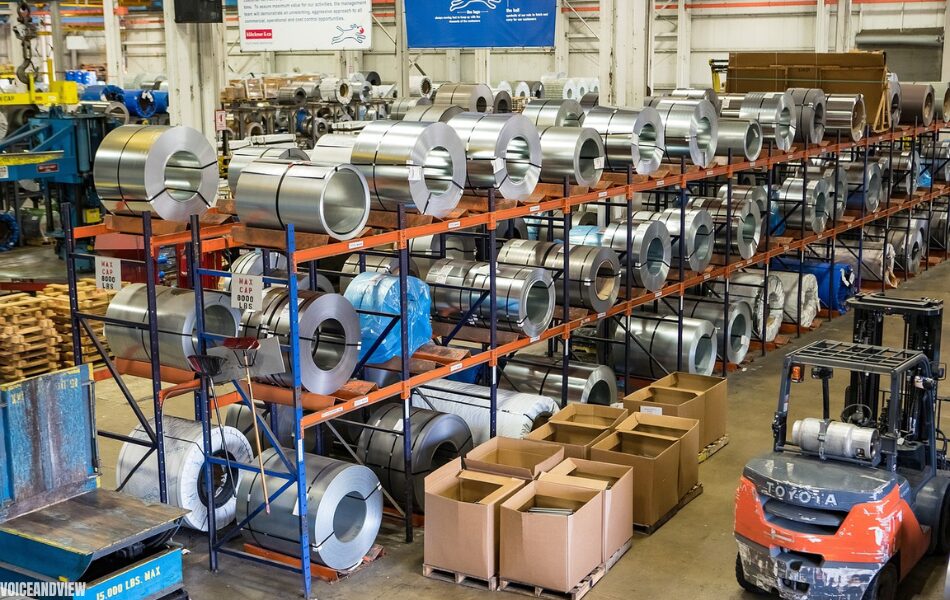Denso 10PA17 447220-4771: A Comprehensive Guide

Ever found yourself grappling with a temperamental car, only to discover a faulty ignition coil? The Denso 10PA17 447220-4771 is a critical component that ensures your vehicle’s engine fires up reliably. In this comprehensive guide, we’ll delve into the intricacies of this part, its function, common issues, and replacement tips to empower you with the knowledge you need.
The Denso 10PA17 447220-4771 is a high-quality ignition coil designed to deliver reliable performance and durability. It plays a pivotal role in the ignition system by generating the high voltage required to ignite the air-fuel mixture within the engine’s cylinders. A malfunctioning ignition coil can lead to a host of problems, including misfires, engine hesitation, decreased fuel efficiency, and difficulty starting the vehicle.
By understanding the significance of this part, you can proactively address potential issues and ensure the optimal performance of your vehicle. In the following sections, we’ll explore common problems associated with the Denso 10PA17 447220-4771, the signs of a failing coil, and the steps involved in replacing it.
Contents
Understanding the Denso 10PA17 447220-4771
The Denso 10PA17 447220-4771 is a critical component within a vehicle’s ignition system. It functions as an ignition coil, specifically engineered to produce the high-voltage electrical current required to ignite the air-fuel mixture within the engine’s combustion chamber. This process is fundamental to the engine’s ability to start and operate smoothly.
A well-functioning ignition coil is paramount to a vehicle’s performance and efficiency. When an ignition coil malfunctions, it can lead to a range of issues, including misfires that result in rough idling, decreased power, and increased fuel consumption. The vehicle may also struggle to start, particularly in cold weather conditions. Additionally, a malfunctioning ignition coil can trigger the check engine light on the dashboard, indicating an underlying problem. Inefficient combustion, a consequence of a faulty ignition coil, can lead to decreased fuel economy. Furthermore, a malfunctioning ignition coil can contribute to increased emissions, potentially harming the environment.
By comprehending the role of the Denso 10PA17 447220-4771 and the potential repercussions of a faulty coil, you can take proactive measures to maintain your vehicle’s performance and reliability. In the subsequent section, we will delve into the common signs of a failing ignition coil.
Common Issues and Symptoms of a Failing Denso 10PA17 447220-4771
Recognizing the signs of a failing Denso 10PA17 447220-4771 ignition coil is crucial to prevent further damage to your vehicle and ensure its optimal performance. Several common symptoms can indicate that your ignition coil may be on its way out.
One of the most common signs of a failing ignition coil is engine misfiring. This occurs when the spark plug fails to ignite the air-fuel mixture in one or more cylinders. Misfires can manifest as rough idling, decreased engine power, and a noticeable decrease in fuel efficiency. Additionally, a failing ignition coil can lead to difficulty starting the engine, especially in cold weather conditions.
The check engine light illuminating on your dashboard is another significant indicator of a potential issue with the Denso 10PA17 447220-4771. This warning light can be triggered by a variety of problems, including a faulty ignition coil. It’s essential to have your vehicle diagnosed by a qualified mechanic to pinpoint the exact cause of the issue.
Several factors can contribute to the failure of an ignition coil. Over time, exposure to extreme temperatures, vibrations, and moisture can degrade the coil’s internal components. Additionally, manufacturing defects or poor quality materials can also lead to premature failure. In some cases, a weak spark plug can place additional stress on the ignition coil, accelerating its deterioration.
By understanding the common signs of a failing Denso 10PA17 447220-4771 ignition coil and the potential causes of failure, you can take proactive steps to address the issue and prevent further damage to your vehicle. In the next section, we’ll discuss the replacement process for this critical component.
Replacing Your Denso 10PA17 447220-4771 Ignition Coil
If you’ve determined that your Denso 10PA17 447220-4771 ignition coil requires replacement, you have two primary options: a DIY repair or professional installation.
For those with mechanical aptitude and experience, replacing the ignition coil independently can be a rewarding endeavor. However, it is crucial to approach this process with caution and adhere to specific guidelines to ensure safety and success. Essential tools and equipment include a socket wrench set, ratchet, combination wrench set, screwdriver set, safety glasses, work gloves, and a replacement ignition coil.
The process begins by disconnecting the negative battery terminal to prevent accidental electrical shock. Next, identify the faulty ignition coil and its location within the engine compartment. Carefully disconnect the electrical connectors from the ignition coil and use the appropriate tools to remove the bolts or screws securing it to the engine. Position the new Denso 10PA17 447220-4771 ignition coil in place and secure it with the bolts or screws. Carefully reconnect the electrical connectors to the new ignition coil and reconnect the negative battery terminal.
Always prioritize safety by wearing safety glasses and work gloves. Ensure the engine is cool before initiating the replacement process and avoid touching any electrical components with wet hands. If you encounter any difficulties or uncertainties, consult a professional mechanic.
While DIY replacement is a viable option for many, seeking professional installation can offer several advantages. Experienced mechanics possess the knowledge, tools, and expertise to efficiently and accurately replace the ignition coil. They can also diagnose any underlying issues that may be contributing to the problem.
When considering professional installation, it is essential to choose a reputable mechanic with a strong track record. Factors such as cost, convenience, and warranty coverage should be taken into account. By entrusting the replacement process to a qualified professional, you can have peace of mind knowing that the job is done correctly.
In the next section, we will delve into frequently asked questions about the Denso 10PA17 447220-4771 ignition coil.
Tips for Maintaining Optimal Performance of Your Denso 10PA17 447220-4771
To ensure the longevity and optimal performance of your Denso 10PA17 447220-4771 ignition coil, it is crucial to prioritize regular vehicle maintenance and adopt mindful driving habits.
Regular vehicle maintenance is the foundation of keeping your vehicle running smoothly. By adhering to a consistent maintenance schedule, you can prevent potential issues and extend the lifespan of your ignition coil. Regular oil changes are essential for lubricating the engine’s internal components, including the ignition coil. Fresh oil helps to dissipate heat and protect against wear and tear. Replacing the air and fuel filters regularly ensures that clean air and fuel reach the engine, promoting efficient combustion and reducing stress on the ignition coil. Regular inspections by a qualified mechanic can help identify potential problems early on. They can check the condition of the ignition coil, spark plugs, and other components that can affect its performance.
Your driving habits can significantly impact the lifespan of your ignition coil. By adopting a few simple practices, you can help prolong its life and prevent premature failure. Excessive acceleration and hard braking can put unnecessary stress on the engine and its components, including the ignition coil. Prolonged idling can lead to increased wear and tear on the engine, including the ignition coil. Using high-quality fuel can help to keep your engine clean and running efficiently.
By following these tips and prioritizing regular maintenance, you can optimize the performance of your Denso 10PA17 447220-4771 ignition coil and enjoy a smoother, more reliable driving experience.
Conclusion
The Denso 10PA17 447220-4771 ignition coil is a vital component in ensuring the optimal performance and longevity of your vehicle. By understanding its function, recognizing the signs of a failing coil, and following proper maintenance practices, you can prevent potential issues and maintain a smooth driving experience.
Remember, regular vehicle maintenance, including oil changes, filter replacements, and inspections, is crucial. Adopting mindful driving habits, such as avoiding aggressive driving and excessive idling, can also help prolong the life of your ignition coil.
If you suspect a problem with your Denso 10PA17 447220-4771 ignition coil, it’s important to consult a qualified mechanic for diagnosis and repair.
We encourage you to share this information with others who may find it helpful. If you have any questions or comments, please feel free to leave them below.
FAQs
Q: What is the Denso 10PA17 447220-4771?
A: The Denso 10PA17 447220-4771 is a high-quality ignition coil designed to deliver reliable performance and durability. It plays a pivotal role in the ignition system by generating the high voltage required to ignite the air-fuel mixture within the engine’s cylinders.
Q: Why is the Denso 10PA17 447220-4771 important?
A: A well-functioning ignition coil is vital for a vehicle’s performance and efficiency. When an ignition coil malfunctions, it can lead to a variety of issues, including misfires, engine hesitation, decreased fuel efficiency, and difficulty starting the vehicle.
Q: What are the common signs of a failing Denso 10PA17 447220-4771?
A: One of the most common signs of a failing ignition coil is engine misfiring. This occurs when the spark plug fails to ignite the air-fuel mixture in one or more cylinders. Misfires can manifest as rough idling, decreased engine power, and a noticeable decrease in fuel efficiency. Additionally, a failing ignition coil can lead to difficulty starting the engine, especially in cold weather conditions. The check engine light illuminating on your dashboard is another significant indicator of a potential issue with the Denso 10PA17 447220-4771.
Q: How can I replace the Denso 10PA17 447220-4771?
A: If you’ve determined that your Denso 10PA17 447220-4771 ignition coil needs replacement, you have two primary options: a DIY repair or professional installation. For those with mechanical aptitude and experience, replacing the ignition coil independently can be a rewarding endeavor. However, it is crucial to approach this process with caution and adhere to specific guidelines to ensure safety and success.








